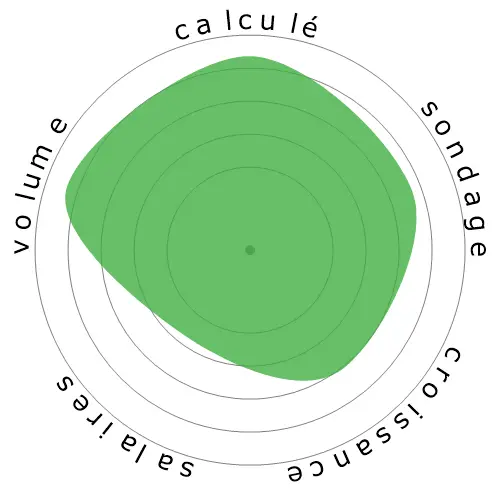Enseignants de maternelle, d'élémentaire, de collège, de lycée et d'éducation spécialisée




Les gens ont également vu
Risque d'automatisation calculé
Risque Minimal (0-20%) : Les professions dans cette catégorie ont une faible probabilité d'être automatisées, car elles exigent généralement une résolution complexe de problèmes, de la créativité, de solides compétences interpersonnelles et un haut degré de dextérité manuelle. Ces emplois impliquent souvent des mouvements de main complexes et une coordination précise, rendant difficile pour les machines de reproduire les tâches requises.
Plus d'informations sur ce que représente ce score et comment il est calculé sont disponibles ici.
Cette page est une page de catégorie qui comprend plusieurs professions. Pour déterminer un score pour cette catégorie, nous calculons la moyenne de toutes les professions qu'elle contient.
Veuillez consulter les pages individuelles des professions pour plus d'informations sur chaque profession incluse dans cette catégorie, vous pouvez les voir énumérées. ici.
Sondage utilisateur
Nos visiteurs ont voté qu'il y a peu de chances que cette profession soit automatisée. Cette évaluation est davantage soutenue par le niveau de risque d'automatisation calculé, qui estime 11% de chances d'automatisation.
Que pensez-vous du risque de l'automatisation?
Quelle est la probabilité que Enseignants de maternelle, d'élémentaire, de collège, de lycée et d'éducation spécialisée soit remplacé par des robots ou l'intelligence artificielle dans les 20 prochaines années ?
Croissance
On s'attend à ce que le nombre d'offres d'emploi pour 'Preschool, Elementary, Middle, Secondary, and Special Education Teachers' diminue 0,1% d'ici 2033
Emploi total, et estimations des offres d'emploi
Les prévisions mises à jour sont attendues 09-2025.
Salaires
En 2023, le salaire annuel médian pour 'Preschool, Elementary, Middle, Secondary, and Special Education Teachers' était de 63 280 $, soit 30 $ par heure.
'Preschool, Elementary, Middle, Secondary, and Special Education Teachers' ont été payés 31,7% de plus que le salaire médian national, qui était de 48 060 $
Salaires au fil du temps
Volume
À partir de 2023, il y avait 4 261 430 personnes employées en tant que 'Preschool, Elementary, Middle, Secondary, and Special Education Teachers' aux États-Unis.
Cela représente environ 2,8% de la main-d'œuvre employée à travers le pays
Autrement dit, environ 1 personne sur 35 est employée en tant que 'Preschool, Elementary, Middle, Secondary, and Special Education Teachers'.
Description du poste


Commentaires
Leave a comment
plus, the robots might even scare them
Tools like intelligent tutoring systems, virtual reality for immersive learning experiences, and automated administrative tasks can free up educators to focus on more critical aspects of teaching, such as emotional intelligence and critical thinking.
While AI's integration into education could enhance teaching and learning processes, a complete takeover is less about replacement and more about augmentation and partnership between human educators and AI technologies. The future likely holds a blend where AI supports education, enriching the learning experience without fully displacing the human touch that is crucial for student development.
Laissez un commentaire sur cette profession